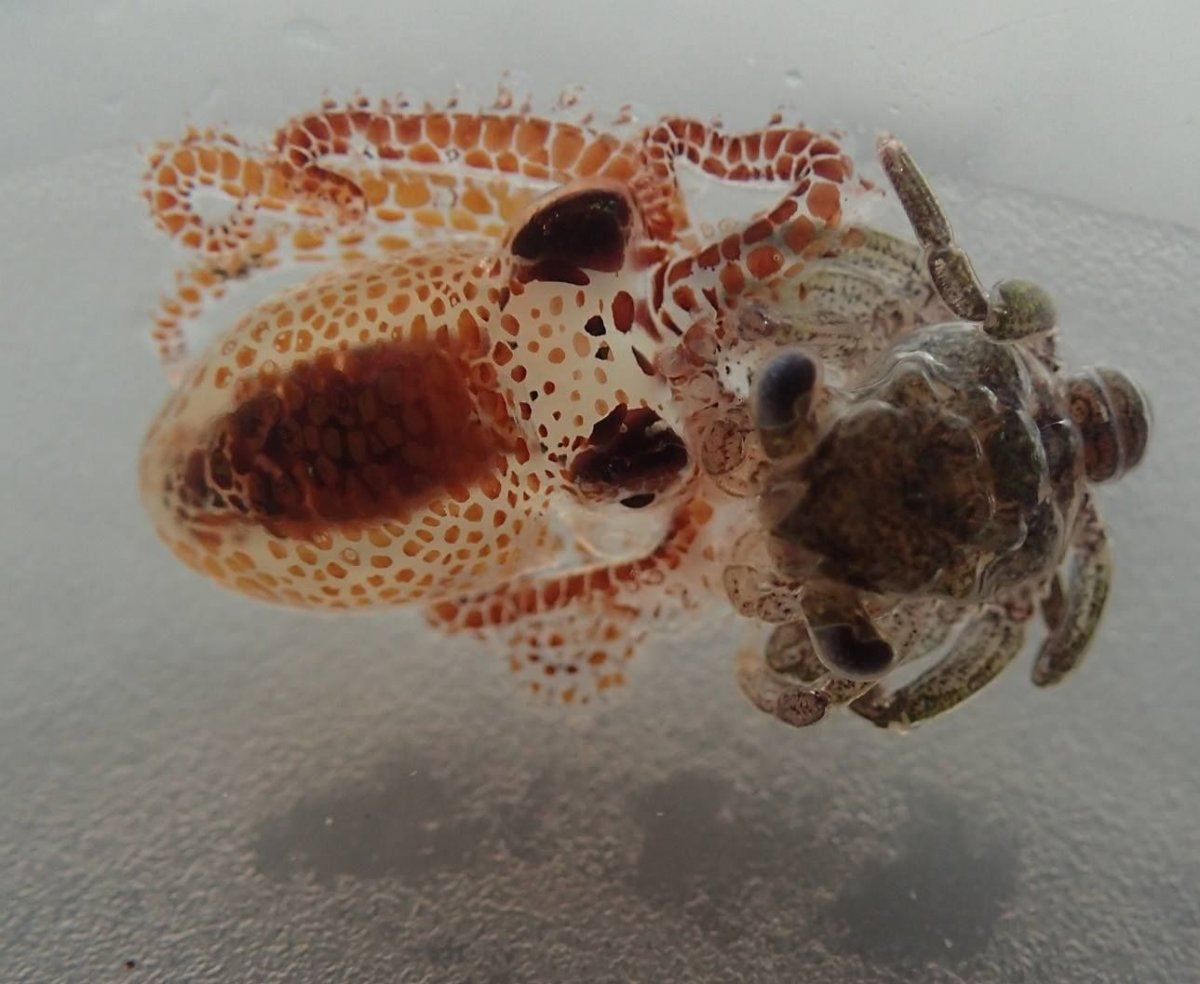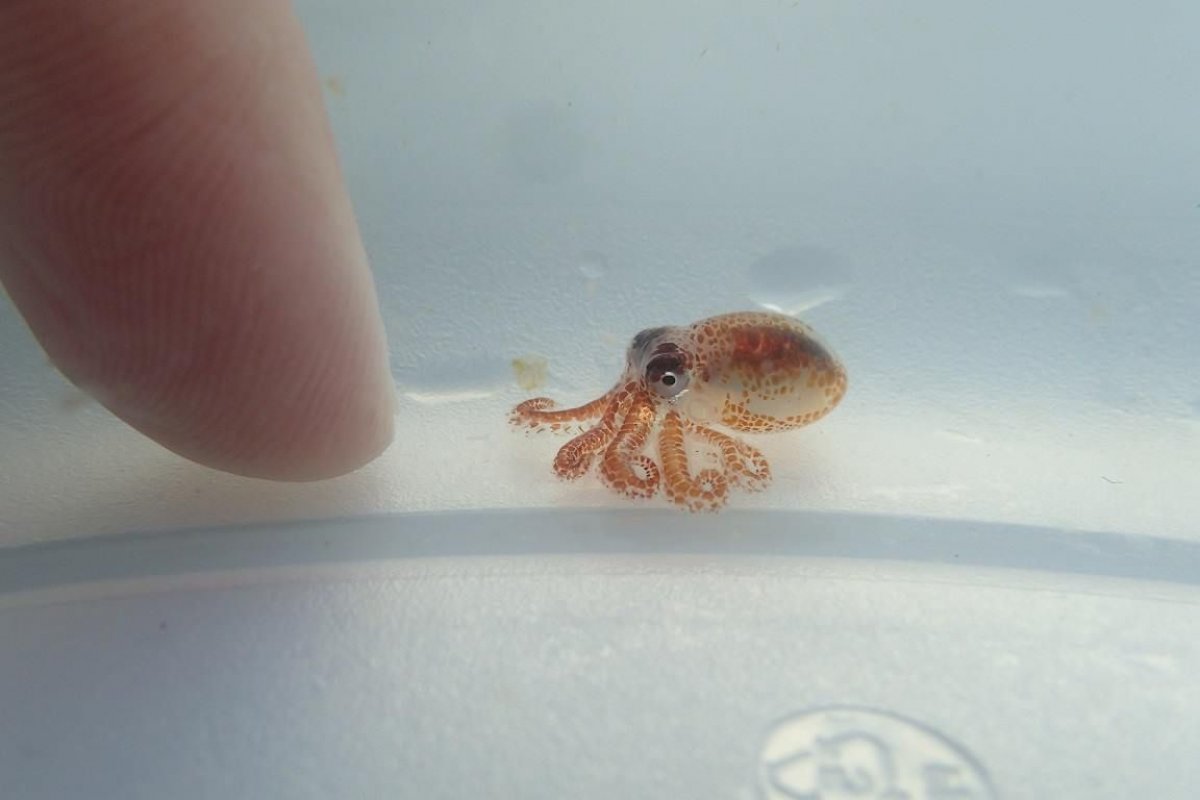Marine biologists inspecting coral reefs off Hawaii have rescued two tiny baby octopuses they found floating among pieces of plastic trash, The Associated Press has reported.
The researchers scooped up the teeny-tiny cephalopods from their rubbish rafts and released them into protected waters.
Who knew an octopus 🐙 could be so cute! Biologists found this little one while monitoring coral reef at Kaloko-Honokōhau National Historical Park and later released it safe and sound #Hawaii #FindYourPark pic.twitter.com/zh7XKjAVKD
— US Department of the Interior (@Interior) October 23, 2018
The Kaloko-Honokōhau National Historical Park in Hawaii shared photos of the pea-sized critters found during a surface break back in August, but the adorable images reemerged on social media Monday when shared by the U.S. Interior Department.
Baby octopuses take shelter under floating debris like logs for the first few months of their lives, The AP reported. These particular eight-legged sea peas are likely day or night octopus, Kaloko-Honokohau marine ecologist Sallie Beavers told the news agency. As adults, such creatures can weigh up to 14 pounds, researchers reported in the Journal of Zoology. According to Cephalods: A World Guide, the animals' arm spans can grow to about three feet in length.
They may be adorable, but the tiny octopuses are already more viscous than you might expect. The Kaloko-Honokōhau park shared a photo of one baby attacking and killing a baby crab with the comment, "Maybe they aren't so cute?"

These delightful mini cephalopods aren't the only adorable octopuses in the sea. Back in 2015, scientists suggested naming an octopus "Opisthotheusis adorabilis" because it was so darn cute, Science Friday reported in a video.
Earlier this year, footage emerged of the birth of a baby dumbo octopus—the first known video of its kind.
Like many sea creatures, Kaloko-Honokōhau's adorable baby octopuses are vulnerable to the perils of plastic pollution. Scientists recently discovered starfish living as deep as a mile below the surface of the ocean had been ingesting tiny fragments of plastic for decades.

"Initially we expected the levels of microplastics to decrease as we went back in time, however this was not the case," researcher Winnie Courtene-Jones previously told Newsweek. "This...indicates that microplastics may be present at this deep location earlier than 1976."
But the effects of plastic pollution aren't restricted to sea creatures. Scientists recently reported finding microplastic in samples of human feces collected around the world. Stool samples from people living in Finland, Italy, Japan, the Netherlands, Poland, Russia, the U.K. and Austria all contained traces of microplastics. But the authors cautioned the study group was relatively small.
"We know that plastics are ingested from plastic water bottles, that microfibers stream out of washing machines and the fish we eat contain them," researcher Amanda Callaghan from the U.K.'s University of Reading—who was not involved in the study, previously told Newsweek. "The big questions are: Is it damaging our health and what can we do to reduce our exposure?"
Kaloko-Honokōhau National Historical Park Hawaii did not immediately respond to Newsweek's request for comment.
Uncommon Knowledge
Newsweek is committed to challenging conventional wisdom and finding connections in the search for common ground.
Newsweek is committed to challenging conventional wisdom and finding connections in the search for common ground.
About the writer
Katherine Hignett is a reporter based in London. She currently covers current affairs, health and science. Prior to joining Newsweek ... Read more
To read how Newsweek uses AI as a newsroom tool, Click here.








